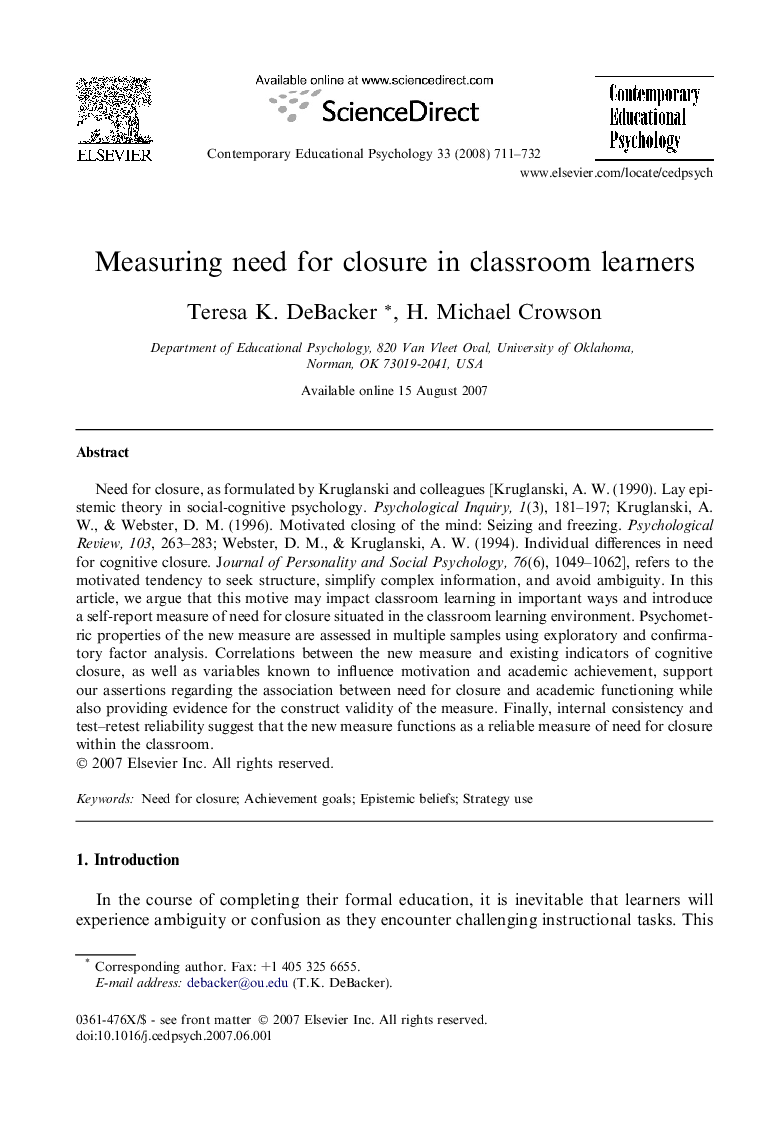| Article ID | Journal | Published Year | Pages | File Type |
|---|---|---|---|---|
| 352827 | Contemporary Educational Psychology | 2008 | 22 Pages |
Need for closure, as formulated by Kruglanski and colleagues [Kruglanski, A. W. (1990). Lay epistemic theory in social-cognitive psychology. Psychological Inquiry, 1(3), 181–197; Kruglanski, A. W., & Webster, D. M. (1996). Motivated closing of the mind: Seizing and freezing. Psychological Review, 103, 263–283; Webster, D. M., & Kruglanski, A. W. (1994). Individual differences in need for cognitive closure. Journal of Personality and Social Psychology, 76(6), 1049–1062], refers to the motivated tendency to seek structure, simplify complex information, and avoid ambiguity. In this article, we argue that this motive may impact classroom learning in important ways and introduce a self-report measure of need for closure situated in the classroom learning environment. Psychometric properties of the new measure are assessed in multiple samples using exploratory and confirmatory factor analysis. Correlations between the new measure and existing indicators of cognitive closure, as well as variables known to influence motivation and academic achievement, support our assertions regarding the association between need for closure and academic functioning while also providing evidence for the construct validity of the measure. Finally, internal consistency and test–retest reliability suggest that the new measure functions as a reliable measure of need for closure within the classroom.
